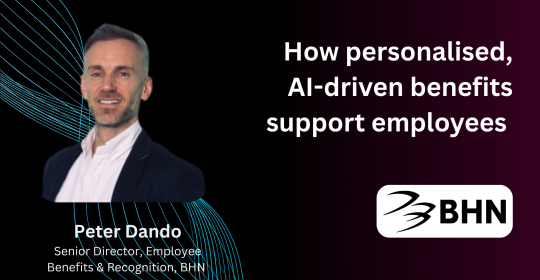London-based Royston-Lee, who works widely with CEOs as well as helping former soldiers rehabilitate and return to work, said: “Many acknowledge that the CV is no longer fit for purpose, yet it is still at the heart of the way in which we recruit.
“With increasing complexity in the world of work, the speed of change and the resulting skills shortages, we are looking beyond the boundaries of the CV and what someone has done in the past. Employers need to know the potential someone has now and for the future.
“The ‘gaming’ of CVs by candidates to include job description key words compounds the problem and means that their CV often bears little resemblance to the actual person it represents.”
Deloitte in its 2019 Global Human Capital Trends survey showed 70% of employers cited recruitment as a critical issue. It reported: “High rates of employee-initiated turnover and lower rates of unemployment, plus other challenges unique to today also exist. The accelerating adoption of automation is creating intense demand for technical skills that don’t widely exist in today’s workforce. And many employers believe that large numbers of college graduates are missing skills in complex thinking, collaboration, teamwork and communication. All of these challenges make finding qualified talent particularly difficult.”
Out of the total employers surveyed, 61% viewed their biggest recruiting challenge as finding qualified, experienced people.
Royston-Lee says that many organisations facing these issues are realising that internal candidates, even though they may not have the required skills currently, are the answer.
“In my own experience working with chief executives, this is increasingly the best and most cost effective option, as they know the individuals concerned,” he said. “They talk about interviewing external candidates who bear little resemblance to the picture given by their CVs and they are acutely aware of the importance of ‘cultural fit’ and an individual‘s values.
”These issues have arisen because the CV was devised at a time when people did not change jobs. Jobs were for life and the CV that simply presented a picture of a person’s past, was the best way to predict their future.”
Along with former recruitment software MD Tim Richards, on October 30 last year the pair launched digital start-up Future Resume. It provides a revolutionary recruitment tool devised by Royston-Lee that allows companies to ‘discover’ the person behind their CV.
Designed to replace the need for a first interview, a Future Resume acts as a sophisticated, digital matching tool and provides hiring managers with improved insight about the candidate. A more informed decision can be made about who to shortlist and what to ask at interview, saving a significant amount of time.
He said: “With research showing that organisation changes will demand much more flexibility in individuals in the future, the way in which we approach the recruitment process should reflect this. The emphasis should be on a person’s potential to develop with the company as it grows. Currently, a CV simply shows us a snapshot of what someone has done in the past and not what a person can do in the future.”
He is also concerned about increased investment in ‘workforce sciences’, based on the idea that the data individuals create while doing things online can be ’harvested’ and interpreted to provide a better idea of a person’s suitability.
He added: “I would argue that we need to be a lot more ‘candidate centric’. People know what they are capable of, and more importantly, what is it they want to be doing in the future. Too often the areas that cannot be ‘measured’ are given little credence in the recruitment process.
“If one takes a step back from the CV, it is merely a historical record of what someone has achieved in work and does not identify what they are potentially capable of in the future. Identifying what an individual’s talents are and how they use them, in my mind, is a much better way of really understanding a person and what they can achieve. Coupled with their aspirations and their values, we can start to see exactly where a person is heading on their journey to find work that satisfies them using their capabilities to the full.”
Richards and Royston-Lee say the use of Future Resume will also help to address recruitment struggles faced by young people with little or no past work experience and employees recruiting for entry-level jobs.
To find out more watch the video and visit the website at www.futureresume.com






